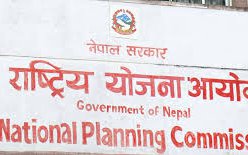More on News





The first Joint Review Meeting of Nepal’s School Sector Development Plan (2016-2023) concluded with the formal endorsement of the SSDP by the Development Partners.
The Ministry of Education convened this gathering from 22 to 25 November and brought together government officials, education sector stakeholders, civil society and development partners to kick-off the implementation of the 7 year SSDP and to develop a joint understanding on the way forward.
"The formal endorsement of the SSDP by the Development Partners is a key outcome of this four days of reflection and review and we all share the commitment to rigorously focus on SSDP implementation to serve the young generation of Nepal on the way towards a brighter future, enhanced opportunities for all of them and more productive lives in a harmonious society." Secretary of the Ministry of Education Shanta Bahadur Shrestha stated.
Meanwhile, Head of Cooperation Andreas Roettger from the EU Delegation added on behalf of the Development Partners: "While the medium and long term benefits of the SSDP to foster socio-economic transformation in Nepal are its guiding vision, right now it is in particular important to focus all energies on the swift and safer reconstruction of schools; and the development partners extend their full support to make this happen."
The SSDP covers the entire school education sector, including non-formal education, and is projected to cost US$ 13.1 billion. The SSDP Development Partners are expected to contribute approximately US$ 430-450 million over the first 5 years of implementation as part of a Sector Wide Approach.
According to a press release issued by European Union, the SSDP aims to build on the previous achievements made in the sector in terms of access through strengthening the quality of education and improving learning outcomes of over 10 million children annually from pre-primary to grade 12. The SSDP supports Nepal’s ambition to graduate from Least Developed Country status by 2022 and to reach Middle Income status by 2030, by ensuring children and young adults complete their education with relevant and employable skill sets and capitalising on the country’s current demographic dividend.
Major strategies of the SDSP include targeted interventions to reduce disparities in access, participation and learning outcomes for children through the implementation of the equity strategy, the development of a national curriculum and qualification framework, providing inclusive education for children with disabilities, and strengthening assessment systems and early grade reading skills .
Nepal has begun its journey towards becoming a middle income country and meeting the Sustainable Development Goals by 2030. Both these aspirations cannot be met without ensuring the full recovery of the school sector from the devastating 2015 earthquakes, and beyond that, ensuring that all children have access to safe classrooms. The earthquakes caused huge destruction destroying 31,131 classrooms within 31 affected districts. The sad toll on lives of this disaster, which saw more than 9,000 people perish, would have been much higher had the earthquake happened on any other day than a Saturday, the only day that schools are closed. Given the disaster-prone location that Nepal is in, the question is 'when' will a disaster occur again rather than ‘if’. As such, Nepal needs to ensure that all children have safe spaces to learn.








